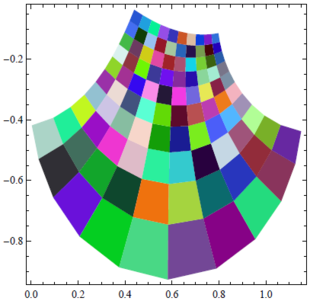12-240/Classnotes for Tuesday October 2: Difference between revisions
| Line 36: | Line 36: | ||
thus x + y = y + x ( and the sum <math>\in\!\,</math> W since W is closed under addition) |
thus x + y = y + x ( and the sum <math>\in\!\,</math> W since W is closed under addition) |
||
VS2: (x + y) + z = x + (y + z) is proven similarly |
|||
VS3: As given, 0 of V <math>\in\!\,</math> W, pick any a in W ( possible since W is not empty) |
|||
=> a <math>\in\!\,</math> V hence a + 0 = a |
|||
Thus 0 is also additive identity element of W |
|||
== Class Notes == |
== Class Notes == |
||
Revision as of 14:20, 4 October 2012
| |||||||||||||||||||||||||||||||||||||||||||||||||||||||||
The "vitamins" slide we viewed today is here.
Today, the professor introduces more about subspace, linear combination, and related subjects.
Subspace
Remind about the theorem of subspace: a non-empty subset W ⊂ V is a subspace iff is is closed under the operations of V and contains 0 of V
Proof:
First direction:
if a non-empty subset W ⊂ V is a subspace , then W is a vector space over the operations of V .
=> + W is closed under the operations of V.
+ W has a unique identity of addition: a W: 0 + a = a
Moreover, a a V. Hence 0 is also identity of addtition of V
Second direction
if a non-empty subset W ⊂ V is closed under the operations of V and contains 0 of V
we need to prove that W is a vector space over operations of V, hence, and subspace of V.
Namely, we need to show that W satisfies all axioms of a vector space, but now we just consider some axioms and leave the rest to readers.
VS1: Consider x,y W => a,b V
While V is a vector space
thus x + y = y + x ( and the sum W since W is closed under addition) VS2: (x + y) + z = x + (y + z) is proven similarly VS3: As given, 0 of V W, pick any a in W ( possible since W is not empty)
=> a V hence a + 0 = a
Thus 0 is also additive identity element of W








